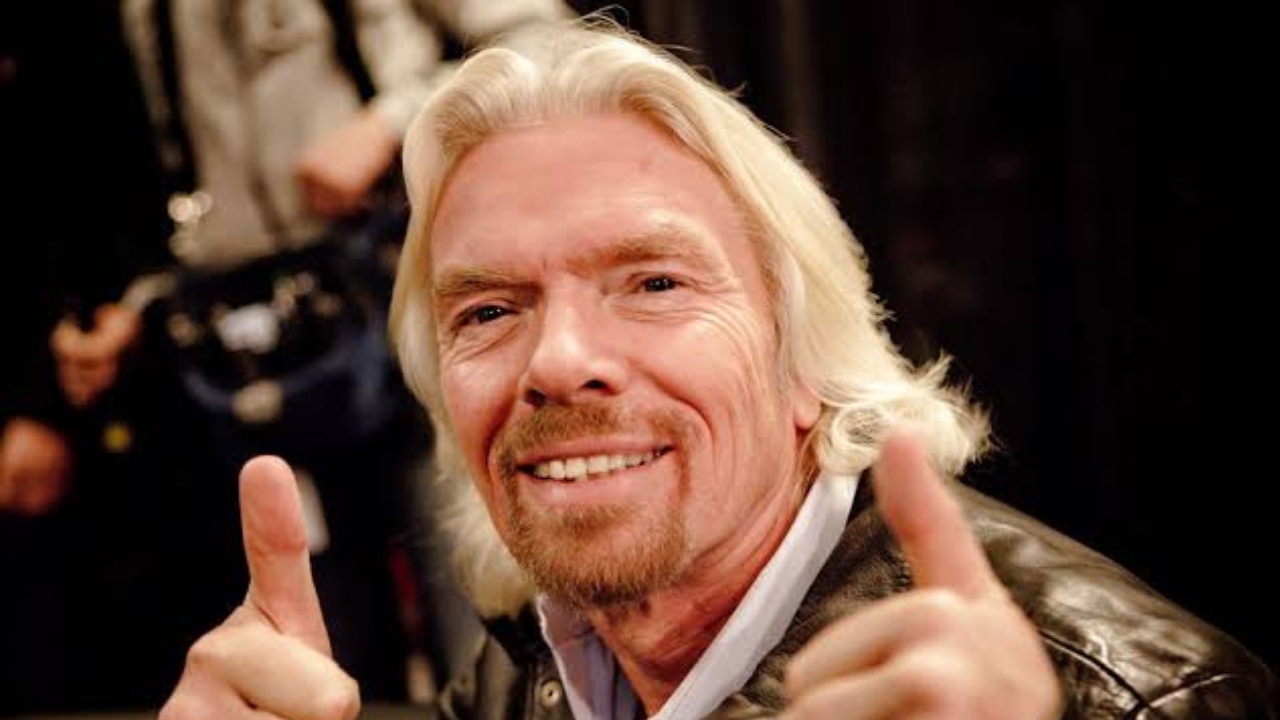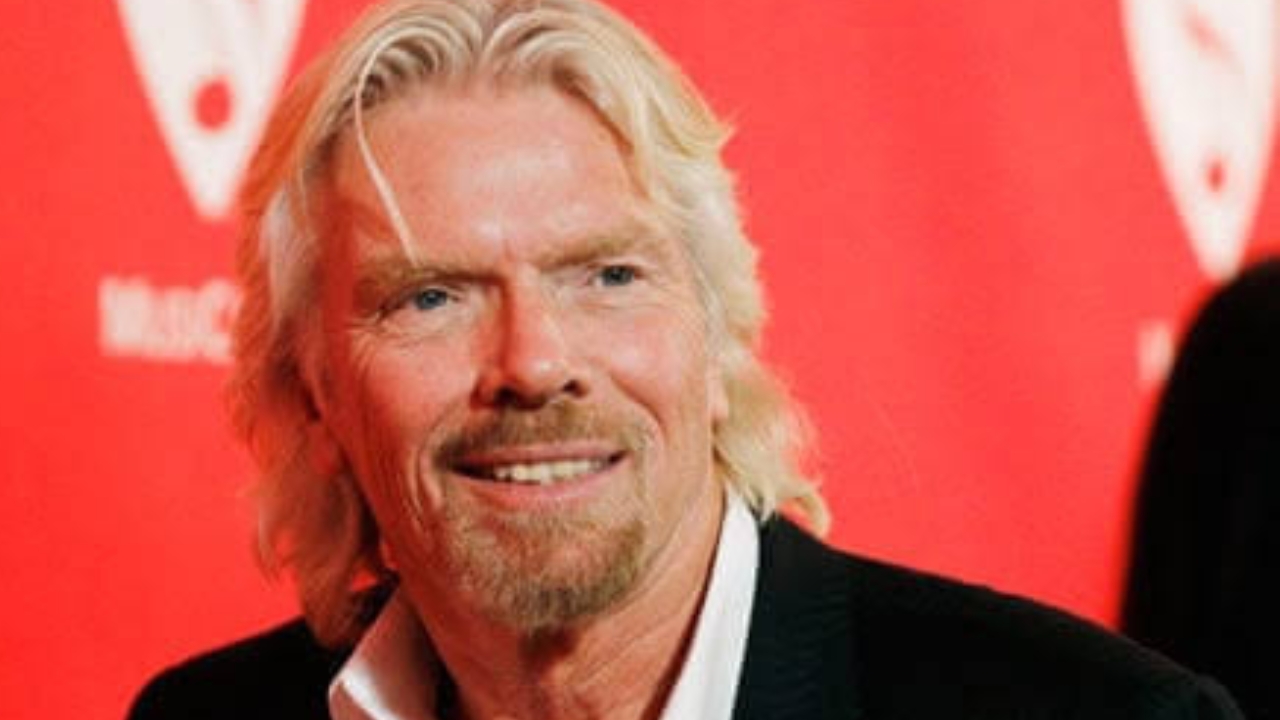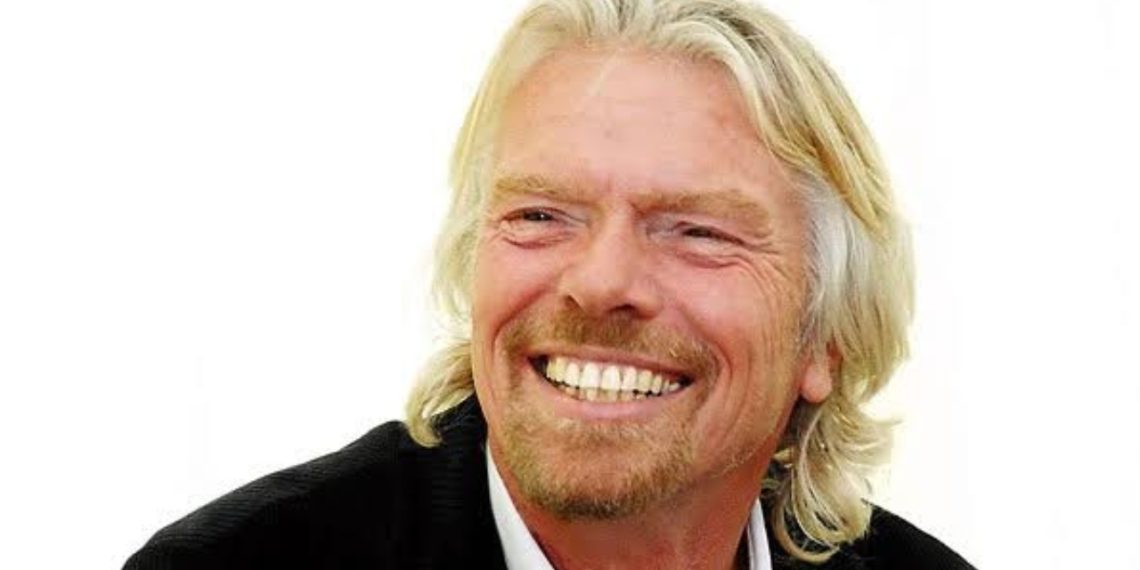Sir Richard Branson is one of the most dynamic and adventurous entrepreneurs of the modern era, with a career spanning over five decades. As of now, his net worth is estimated at $2.7 billion, according to Forbes.
His journey to billionaire status began humbly in the 1960s, when he dropped out of school at the age of 16 and launched a youth-oriented magazine called Student.
He sold nearly $8,000 worth of advertising in the magazine’s first issue, proving early on that he had a knack for business and marketing.
The following year, Branson pivoted to selling records through mail order, operating the business from the same space he used for the magazine.
It was in 1970 that he officially coined the name “Virgin”, symbolizing the inexperience he and his team had in the business world.
Also Read: Mat Armstrong Net Worth 2025: YouTube Career, Achievements & More
The 1970s marked Branson’s breakout decade. He founded Virgin Mail Order Records, and after quickly expanding to a chain of record stores, he launched Virgin Records in 1972.

The label gained instant success with its first big hit, Tubular Bells by Mike Oldfield, which sold over five million copies and made Branson his first million.
Virgin Records became known for signing edgy and controversial acts such as The Sex Pistols, Ozzy Osbourne, and The Rolling Stones, helping the company distinguish itself from traditional record labels.
By the end of the decade, Virgin Music had grown into one of the top six record labels globally, with operations in countries like Germany, France, and Japan.
In 1979, Branson purchased Necker Island in the British Virgin Islands for just $180,000, a move that would later symbolize the luxurious side of his empire through Virgin Limited Edition.
Branson’s business empire expanded rapidly throughout the 1980s. He diversified beyond music, founding Virgin Books and Virgin Video in 1981.
By the mid-80s, Virgin had grown to include more than 50 companies, generating over $17 million in annual sales.
In 1984, Branson launched Virgin Atlantic, an airline that quickly became known for its premium customer service, which included innovations like in-flight massages, individual seat-back screens, and complimentary ice cream—luxuries that helped differentiate the airline from more established competitors.
Virgin Atlantic thrived on Branson’s signature blend of showmanship, customer focus, and unorthodox marketing.
Also Read: Michael Jordan Net Worth 2025: Career, Business Ventures & More
The 1990s brought challenges but also further solidified Branson’s legacy. In 1992, in a difficult but necessary move, he sold Virgin Records to EMI for $1 billion to keep Virgin Atlantic afloat during a time when airline travel was threatened by global instability and competition.

One of the most dramatic events of the decade was a legal battle with British Airways, which Branson accused of running a “dirty tricks” campaign against Virgin Atlantic.
Branson won the case, receiving nearly $1 million in damages and over $3 million in legal fees, along with a public apology. In 1996, he launched Virgin Trains, further cementing his position in the UK’s transportation sector.
In the 2000s, Branson expanded his brand into even more sectors. He launched Virgin Mobile in 2001 in partnership with Sprint, marking Virgin’s entry into wireless telecommunications.
While Virgin Mobile eventually shut down in the U.S. in 2020, it was a significant player in its early years. Arguably Branson’s most ambitious and high-profile project began in 2004, when he co-founded Virgin Galactic with the goal of making space tourism accessible to civilians.
Despite a tragic crash in 2014 that delayed operations, the company persisted. In July 2021, Branson himself flew to space aboard VSS Unity, reaching 53.5 miles above Earth.
Since then, Virgin Galactic has conducted multiple successful spaceflights, launched public ticket sales (at $450,000 each), and completed its 11th mission, Galactic 06, in early 2024.
While other ventures like Virgin Orbit and its subsidiary VOX Space—focused on satellite launches and government contracts—eventually shut down in 2023, Branson’s venture into space proved his continued drive to push boundaries.
Beyond business, Branson is also known for his philanthropic and social initiatives. He founded Virgin Unite, aimed at tackling global health crises like HIV/AIDS, and the Branson Centers of Entrepreneurship, which train young businesspeople in developing countries.
Despite his fortune and fame, Branson has long been admired for his willingness to take risks, defy industry norms, and invest in projects that many considered impractical or impossible.
His success is often attributed to his ability to think creatively, act decisively, and persevere through setbacks.
Today, the Virgin Group comprises over 40 companies in more than 35 countries, spanning industries such as aviation, music, health and wellness, media, hospitality, telecom, banking, and space exploration.
Although Branson does not own all of these companies outright, he profits from them through brand licensing agreements and equity stakes. His personal brand is tightly woven into the fabric of Virgin’s identity, and he remains a beloved figure in British business.
In recognition of his contributions, Branson was knighted in 2000, became a TIME 100 honoree in 2007, and was voted the UK’s “dream boss” in a 2009 national poll.
Ultimately, Richard Branson’s story is not just about building a global business empire—it’s about dreaming big, taking bold risks, and living life with energy and purpose.
From selling records in a small office to sending tourists into space, Branson has continuously reinvented what it means to be an entrepreneur in the modern world.




